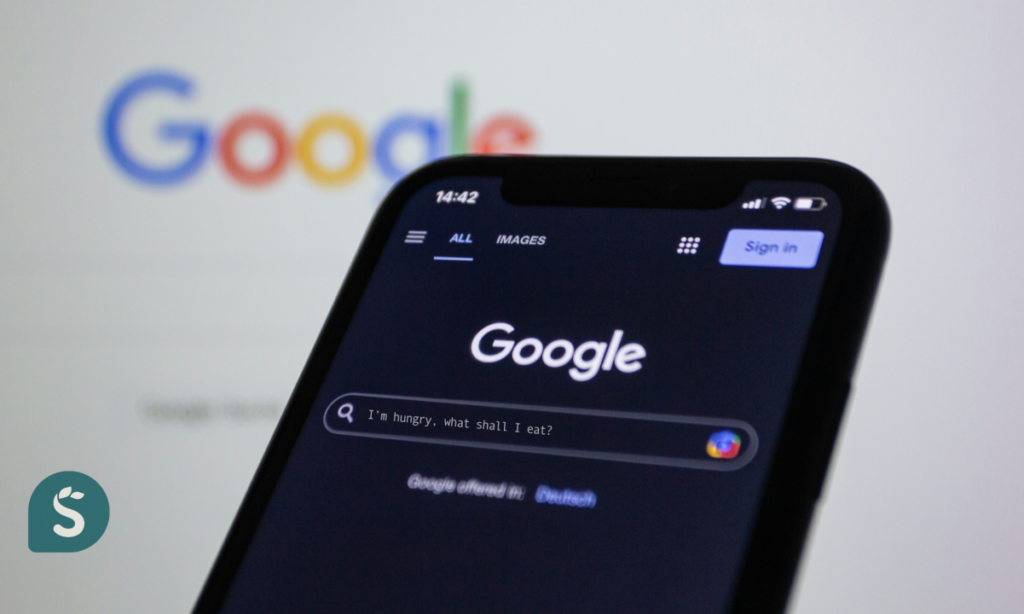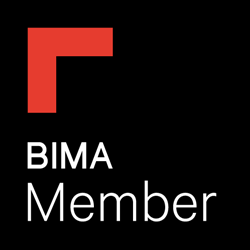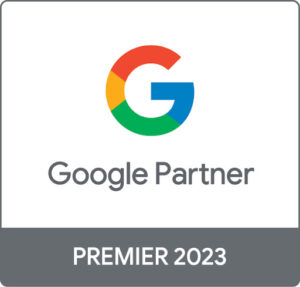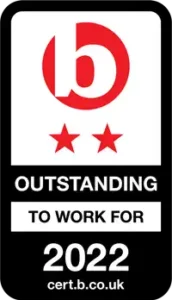
I saw a satire post that joked about if ChatGPT had sponsored replies (x.com/@soren_iverson). Whilst poking fun at the idea of OpenAI using an advertising model, it made me think: is it really that far-fetched? Could OpenAI really start allowing businesses to advertise within one of the world’s most popular products?
If history really does repeat itself, I expect that OpenAI could follow in the footsteps of the giants that came before it. Google developed the world’s most utilised search engine, and then used advertising to make it profitable. Meta developed the world’s most popular social media platform and did the same.

Whilst OpenAI has a vast amount of funding and backing from the likes of Microsoft, we can’t neglect the previously seen patterns of game changing products using advertising for their source of revenue. It’s a proven method to print cash. Now, I personally don’t believe that they’ll start doing this. At least any time soon. But it doesn’t enter the realm of being unrealistic.
Regardless, discussing whether ChatGPT will integrate ads isn’t what screams out from this. What does scream out is the idea that platforms like ChatGPT may end up replacing our traditional way of search as we know it. The idea that Google finally has a competitor worth worrying about is exciting, but the idea that we may see the advertising industry shaken up as a result is even more exciting.
If you’ve got a platform like ChatGPT giving you suggestions of where to eat, whether it be organically or via a sponsored reply from Taco Bell, it makes you wonder what use case a search engine has in the AI filled future.
Well, we may see that they have to evolve to continue being useful.
They go from being search engines, where the user relies on their own ability to find the information they’re looking for, to being answer engines, where the heavy lifting is done by Large Language Models (LLMs).
What are LLMs?
Large Language Models are trained on massive datasets to understand, analyse, and generate human-like text. Think of it like talking to a super-smart digital brain that has already read and learned from billions of text documents during its “training phase”. Think of this training like the LLM going to school before you ever talk to it – it learns language patterns, facts, and how to understand and respond to questions. When you type in your question, the LLM uses its “knowledge” to figure out what you’re asking and what would be a good response. It’s similar to how me or you might think about an answer. Drawing from everything we’ve ever learned before.
But if the ‘heavy lifting’ part of search is taken over by LLMs – what happens to search engine advertising? How will PPC evolve with less and less users making searches in search engines but instead in answer engines?
What is an Answer Engine?
The current way of finding information has been the norm for decades now. When we want to seek new information, we open up our preferred browser and then use a search engine to find it. From there, it’s a little hit and miss in finding the right thing.
Of course, search engines are much more than just a way to find new information. They’re often a bridge into various different platforms. But, ultimately, it’s also the best bridge to access the world’s collective knowledge. But the world’s collective knowledge is spread across millions of websites, and some ‘knowledge’ is more accurate than others. So oftentimes we can end up filtering through various sites, crossing the bridge many times, to find what we’re looking for.
That’s why so many people are turning to answer engines – an LLM powered search engine that saves you the manual work when it comes to researching. It stops you from crossing the bridge over and over again and allows you to cross it just once (most of the time).
It turns a 5 minute researching stint into a 5 second one. How? It aggregates information across the web and produces what it deems is the most relevant answer for your question using large language models. The focus is on providing helpful content that directly answers your question. In other words, it saves you from having to aggregate the information yourself and spits out the final answer.
Now there’s always elements of questioning the validity of the information, and rightfully so. But the way these answer engines navigate this is by citing the content itself. By including a citation of the source material, you can investigate the reliability.
Earlier I said that we may see search engines evolve into becoming answer engines. Frankly, this is already happening – and on a large scale. You have Google, who’s already started providing summarised, AI generated answers at the top of the search engine results page (SERP). You have ChatGPT, which recently launched a new revamped search feature free to use for all users. And then you have Perplexity, a highly popular platform that focuses solely on being an answer engine. This really is the tip of the iceberg – the entire industry of search is moving towards providing the final output.
So if answer engines have such an incredible use case, saving you time and mental strain, why would people continue using the traditional search engines? And if people stop using search engines, what happens to PPC?
The Future of Paid Search
Pay-Per-Click (PPC) advertising, especially through search engine ads, is the powerhouse behind Google’s revenue stream. In Q3 2024, search advertising contributed roughly 56% of the company’s $49 billion in earnings. Yet, the future of PPC looks uncertain.
The rise of AI-driven platforms like ChatGPT and Perplexity is shifting user behavior away from traditional search engines. Although most people still use Google, it’s likely that these newer platforms will continue to chip away at its market share over time.
The old, stagnant medium of search is finally evolving. A seismic shift is happening which may leave Google with an unrepairable hole in their revenue stream.
So if search is evolving – will paid search evolve with it?
One of the most reasonable suggestions of how paid search might evolve comes from Aravind Srinivas, the CEO of Perplexity. Srinivas speculates that advertisers should focus on describing products as accurately as possible on their website so that an LLM considers it citation-worthy. Instead of optimising for clicks, optimising for high-quality content. (1)
So we may see Pay Per Click evolve into Pay Per Citation.
The reason I find this reasonable (for eCommerce advertising) boils down to two key factors: first, the way we naturally behave when shopping for products, and second, how we’ve grown accustomed to quickly scanning product details to find exactly what we need.
When we’re on the hunt for a product online, we don’t want just one suggestion. We want a nice little selection to compare from – best price here, fastest delivery there. All those details – photos, prices, shipping options – are easy to communicate in bite-sized snippets. Even in the answer of an answer engine, you can squeeze in a few product options without making the whole thing look like a mess.
Even after a quick glance at basic product details, the finer points – such as features and warranty – can still be conveyed in just a few sentences.
And that’s exactly why I think answer engines could open their doors to product ads. After all, if they can nudge you towards the right product, who loses out? They rake in new revenue, advertisers grab the attention of the right customers, and you get straight to what you’re looking for. It’s a win-win-win, really. The process stays neat, fuss-free, and useful for everyone involved.
So how could this element work? Probably quite similarly to how it does now. You have a list of products you want to advertise, you describe them as well as you can, and then you get placed in an auction when someone searches for it. Whilst I anticipate it would be similar, I also anticipate that it would be far more competitive and expensive. There’s less real estate in an ‘answer’ in comparison to the SERP to display adverts in, which naturally intensifies competition.
There is also a great use case for Pay Per Citation when it comes to lead generation too. Answer engines could go from generating responses to your queries, to doing that plus also presenting you with tailored suggestions for relevant products and services. Instead of scrolling through a list of sponsored links or sifting through an overwhelming number of ads, you’d see a few carefully chosen options woven into an answer (with context). These options could appear as citations linked to advertisers who have entered a competitive bidding process to earn a spot among both organic and paid recommendations. Similarly to how Google’s auction currently works.
Under this model, advertisers could craft descriptions of their offerings and submit them to a platform’s auction system. Or, we may have to submit the URLs of pages we want to advertise and the auction is based on the quality of the content on those pages.
So how could it work? When a user asks a question, the answer engine would analyse the query, decide which citations – both organic and paid – would be most relevant, and serve them up in a response. Paid citations would be clearly marked yet integrated so naturally that they don’t disrupt the flow. Rather than simply paying for clicks, advertisers would be paying each time they’re cited within the platform’s answer. This ensures that both users and advertisers benefit: users get instantly relevant suggestions, and advertisers reach engaged prospects at the exact moment of need.
From a user’s perspective, the experience remains clean and easy. Instead of feeling overwhelmed by ads, they’re presented with just a handful of vetted suggestions that enhance the answer rather than detract from it. For advertisers, this model provides a more efficient way to reach consumers who are already expressing intent in the case that the current form of search becomes extinct altogether. It’s a subtle but potentially revolutionary shift, blending the reliability of organic recommendations with the flexibility and revenue potential of paid citations.
Closing Thoughts
I don’t believe that Google, Bing, or DuckDuckGo will disappear any time soon. Probably never. We’re creatures of habit, and we don’t easily abandon what we’re used to. Still, it’s impossible to overlook the growing utility of LLM-powered answer engines. As more people discover their convenience, it’s likely that the reliance on traditional search will gradually decline.
This article explored a hypothetical scenario in which traditional search engines give way entirely to answer engines. By understanding how advertising models could evolve in such a landscape, we gain insight into the future of search and the ways in which advertisers, users, and platforms might adapt to this potential seismic shift.
So, do I think Google Ads will vanish altogether? Not really. The internet isn’t going anywhere, and as long as it’s around, Google Ads will remain a key player in the digital advertising ecosystem. What may change, however, is our reliance on search as the default advertising medium. As user behaviour shifts and more people turn to answer engines, Google will likely double down on the other advertising avenues it already controls (YouTube & Display).
Consider YouTube: it’s a platform where users are already engaging for longer periods, actively watching content and often open to discovering new products or services through well-placed ads. Video advertising has the unique advantage of storytelling, giving brands a chance to forge deeper connections that don’t rely solely on a user’s immediate search query. Similarly, the Display Network, which places visually-driven ads across a vast range of websites, offers advertisers a way to reach audiences who aren’t actively searching but may still be receptive to recommendations.
In other words, Google Ads may lean less on the immediacy of a user’s search intent and more on broader brand messaging, remarketing, and content alignment. While search ads might lose some of their dominance if answer engines take hold, Google’s expansive network ensures there are plenty of other places for advertisers to be seen. So instead of withering away, Google Ads could evolve, adapting to new user journeys by meeting consumers wherever they’re spending their time online.










